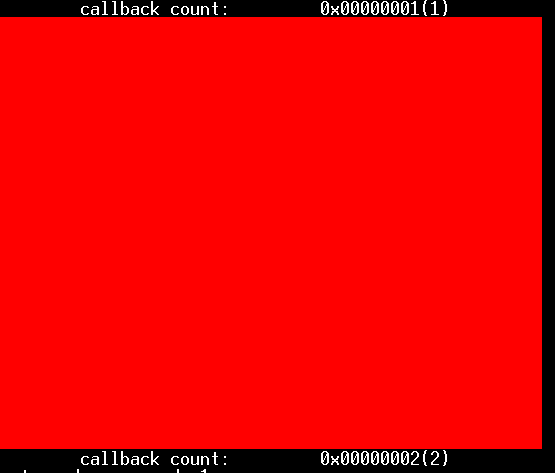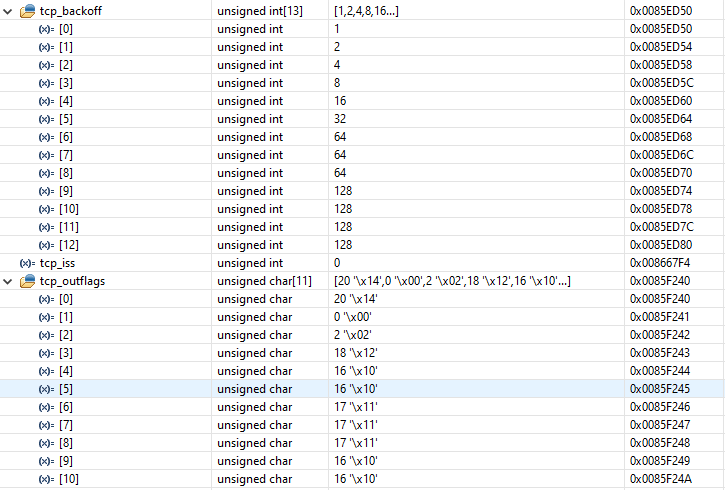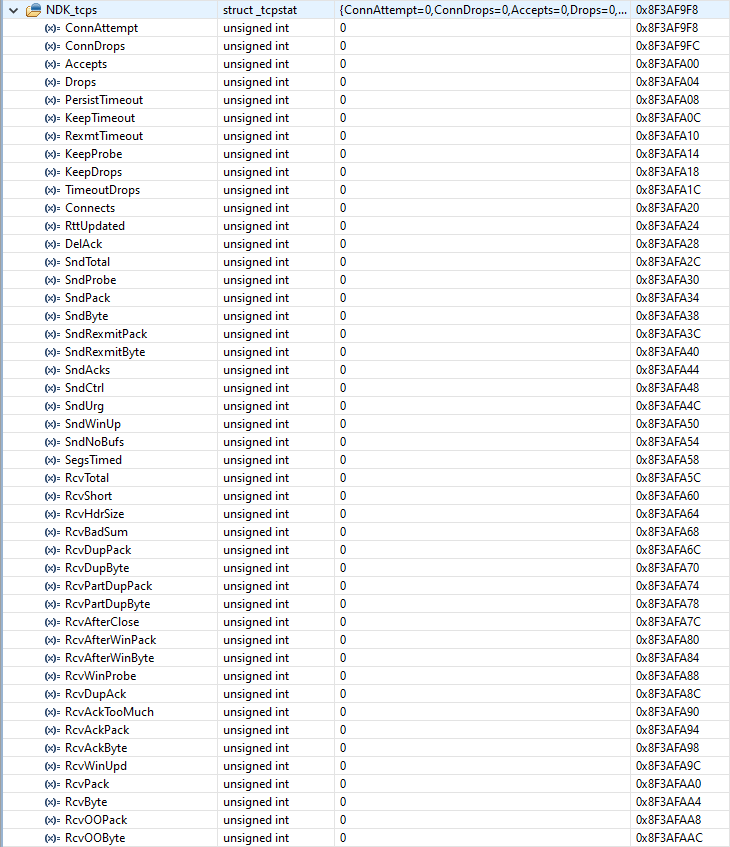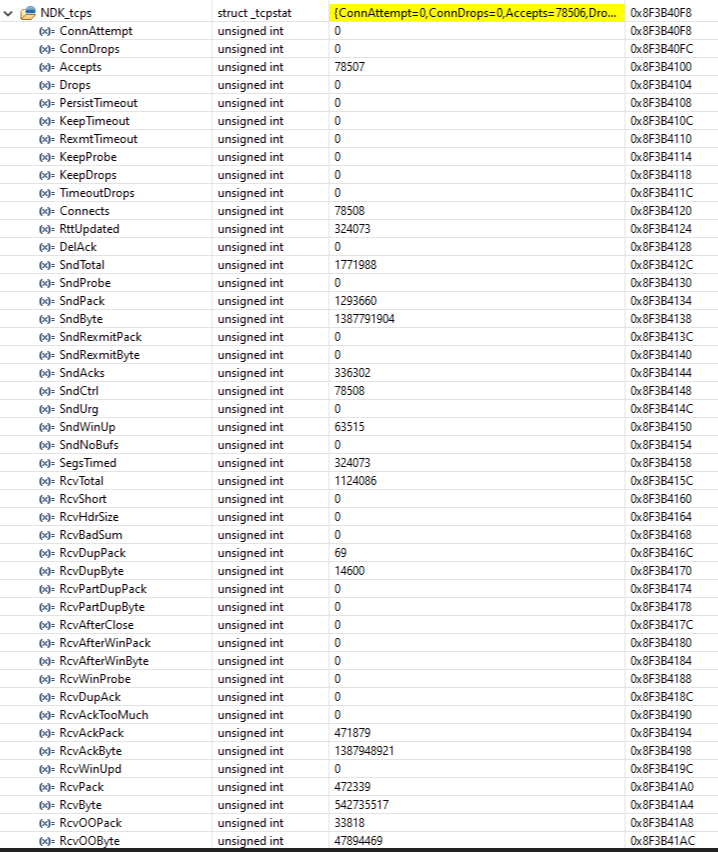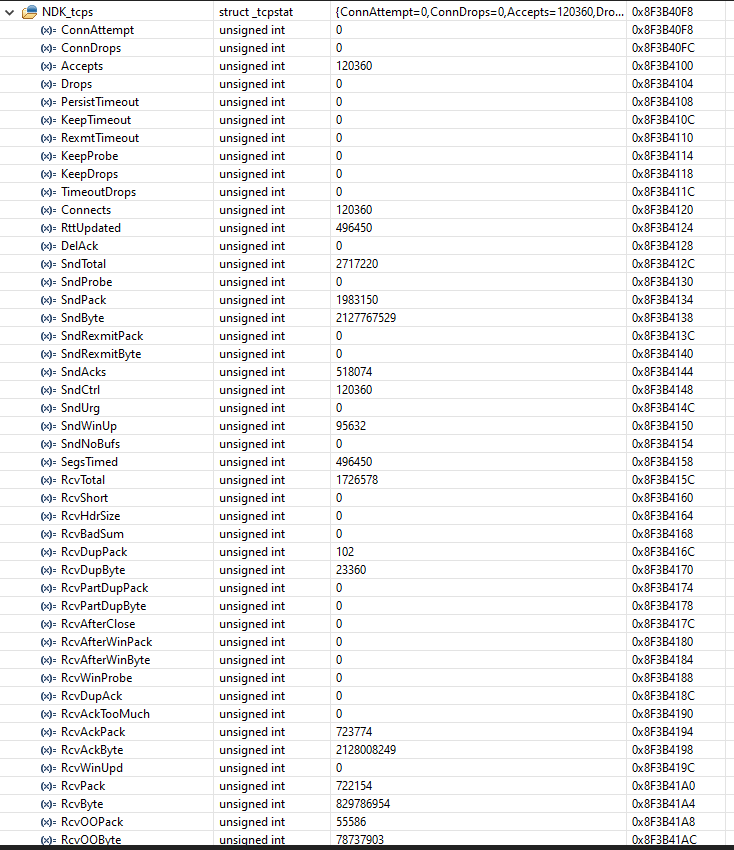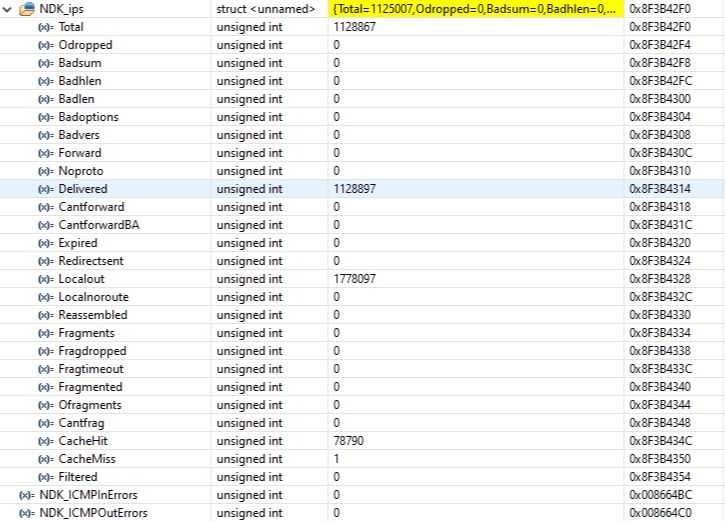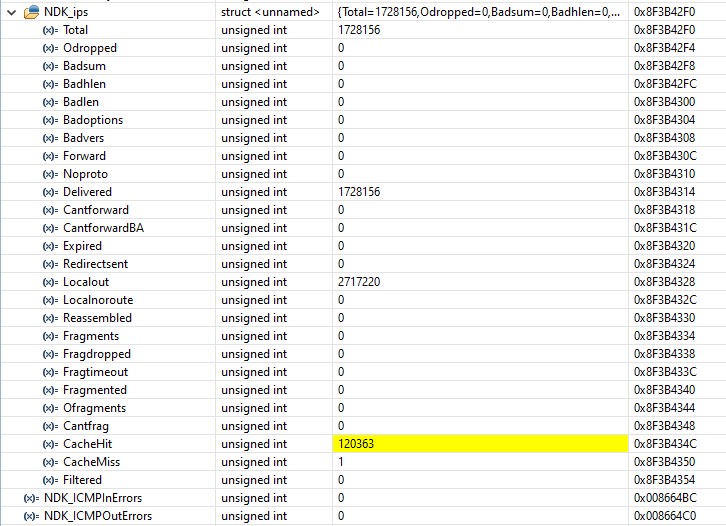Hi,
I have an application using NDK package that creates .cgi files and treats them as REST requests.
When the client polls on the DSP IP address requesting for the specific .cgi link, the callback will return the appropriate response in json format (char arrays obviously).
In one of my long time tests I have seen that after some time the DSP does not respond to requests anymore, but it still responds to ping.
After attaching with debugger I see the core running idle task mainly and it does not break to the breakpoints added in the callback functions.
It seems like those callback are not called at all, either because the request event is not caught or not correctly routed to the callback.
I am using:
SYS/BIOS 6.73.0.12
NDK 3.40.1.01
PDK 2.0.11




